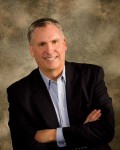By Dr. Bill Donahue
“It was my first time attending the group meeting, but I have to admit it, it felt more like a job interview. I was thinking, ‘Do these people like me? Do I like them? What if they really knew me? Would they invite me back? Would I trust my secrets to them — and would they be authentic and tell me their stories?’ It was awkward and I felt judged. I want to be accepted, not analyzed; loved, not labeled.” Not cool.
This time of year affords many opportunities to welcome them home. Jean Vanier in Community and Growth reminds us, “A loving community is attractive, and a community which is attractive is by definition welcoming. Life brings new life.”
But will unconnected members and inquisitive seekers find a home in a little community? Will they feel like Roger in my group, who said, “I am here because even though I do not believe what you all believe, you make me feel like I belong?”
Some group environments communicate “Come in, kick off your shoes, and let’s hang out for awhile” while others warn, “If you meet the conditions and prove yourself to be worthy, maybe we’ll include you. But be careful … we’re watching.”
The one factor that distinguishes the two environments is grace. It affects the ecology of the entire group, shaping the environment for everyone who sits in the circle. Sadly, we often affirm the reality of saving grace, but ignore sanctifying and healing grace, the kind essential for all communal life to flourish. For some reason — whether fear, uncertainty, or the messiness of group life — we revert to rules and regulations, conformity and condemnation. It may be subtle — but it’s there. Not cool. Actually, it’s deadly.
What does it look like in a group? Grace speaks and receives truth without judgment. Grace brings resources to sinful and broken people, offering help and support. Grace creates safety that prompts healthy confession. Grace shouts, “I am broken, but I am loved!” When grace is in place, members of the group are “for” one another. New members feel welcomed and existing members willingly put personal agendas aside to accommodate the needs of others.
Here’s a caution. You may fail in the attempt to move from fear to freedom. People will struggle wondering, “When do I bite my tongue, and when do I speak the hard truth? When are we going to confront Mike? Or do we allow him to experience the consequences of his actions, and love him along the way? Is Sarah convinced that we really do love her? That we will never hurt her as others have done? Can we argue and debate, and still meet for dinner after a meeting? Do we know how to distinguish “it’s bad” from “you’re bad!”? The answer to all of these questions is a resounding, “I have no clue.” That’s not how grace works — because it’s more art than science.
Begin with the courage to name reality: “I see … I hear … I feel …” And then respond — that’s where grace is — in the response to shared reality and truth. Guard the messy moments when a heart opens up, when a confidence is shared, when a sin is confessed, when a dream is expressed, or when a wound is exposed. Do not be intimidated. Enter the sanctity of those moments with a holy fear and wondrous awe. Don’t run — God is in the middle of that burning bush.
As a friend of mine says, “People don’t want to join your strategy; they want to join your community.” And they will — if grace is in place. If not, the fullness of life in Christ will never be realized, hopes and fears will never surface, and prodigals will never come fully home. Law always produces death. But when grace is in place, stand back. The sweeping wind of the Spirit is likely to blow, and it may knock you off your feet. And that is cool. Very, very cool.






